#Ming Qiu
Photo

#hayden christensen#anakin skywalker#darth vader#minas velti#ming qiu#nari#benny safdie#star wars#obi-wan kenobi
27 notes
·
View notes
Photo

3 notes
·
View notes
Text
In SVSSS, Shen Yuan just supposes that Shen Jiu hated Luo Binghe because he was jealous that Luo Binghe had a mother. But I think that that reasoning is wrong, or atleast incomplete.
So, we know that Shen Jiu hated the name Shen Qingqiu because it reminded him of Qiu Jianluo. It’s more likely that Shen Jiu started to hate Luo Binghe because of the ‘Luo’ he shared with Qiu Jianluo. Shen Jiu only showed hostility towards Luo Binghe after he learned that his name was Luo Binghe.
Knowing MXTX, this was probably intentional and it just makes the PIDW have an even worse conclusion, because it wasn’t that Shen Jiu incapable of caring for other people as he absolutely loved Ning Yingying and probably even Ming Fan. He might have even been decent with Luo Binghe if it wasn’t for the fact that he shared a part of his name with Qiu Jianluo.
This doesn’t excuse Shen Jiu’s actions but it does make more sense that Shen Yuan’s theory that Shen Jiu was jealous of Luo Binghe for having a mother. Because if that was the case it would make more sense for him to be jealous of Ming Fan or any other disciple who came from a wealthy background.
I rest my case here.
#mxtx svsss#svsss#shen qingqiu#shen yuan#shen jiu#qiu jianluo#luo binghe#luo bingge#luo bingmei#mxtx#ming fan#ning yingying#scum villian self saving system#scum villain#scumbag system#scumbag self saving system#scumbag villain#i just needed to get it out of my system#this is my headcanon#though I am pretty sure that it’s canon#this can’t be a coincidence
577 notes
·
View notes
Text

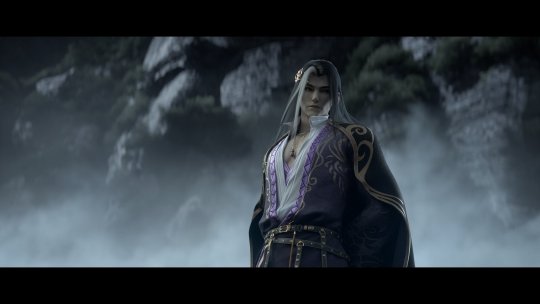

when you know, you know
#svsss#scum villain's self saving system#shen qingqiu#thousand autumns#qian qiu#yan wushi#tian guan ci gu#tgcf#heaven official's blessing#ming yi#danmei#donghua#danmei donghua#wu lei
109 notes
·
View notes
Text

Shen Qiao “Thousand Autumns”
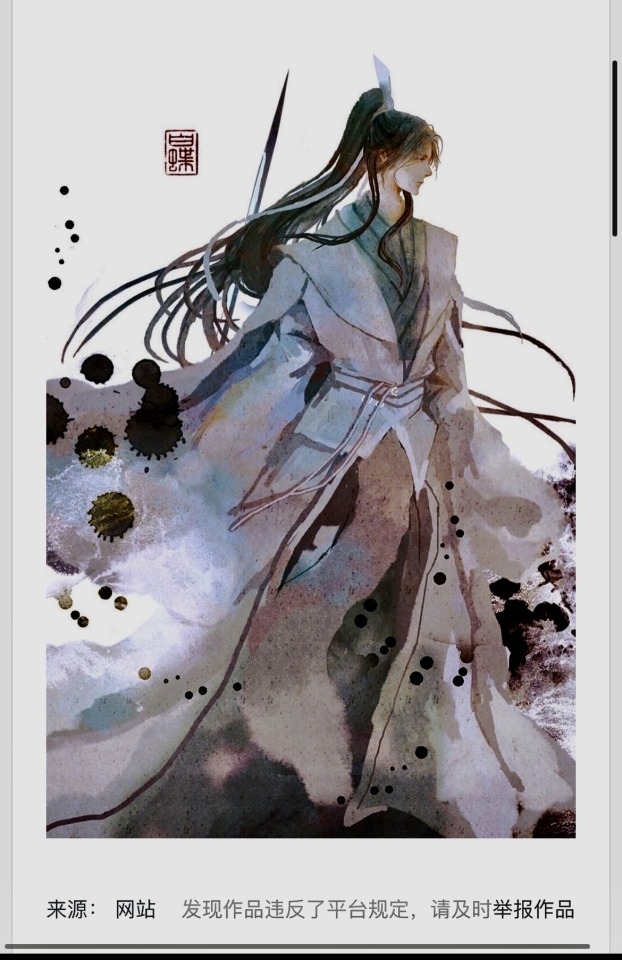
#danmei#donghua#chinese novel#Ming x#qian qiu#meng xi shi#thousand autumns#shen qiao#daoism#daoist#gracg
104 notes
·
View notes
Text
[Book Rec + Reaction/Thoughts] The Lantern and the Night Moths 灯与夜蛾 by Yilin Wang
An anthology of translated poems by five modern or contemporary poets and accompanying essays by the translator, @yilinwriter.
You can find the pronunciation guide and list of corrections here!
The cover art, a beautiful expression of the tone of this collection, is by Taiwanese artist Ciaoyin (check out her gorgeous insta!). I'm looking forward to the arrival of the physical book as my tab absolutely does not do it justice xD

Anyway! The official release date is 02 April 2024 though there have been some very thoughtful reviews by early readers already. Here, here, here and here.
(It was an ARC that I received too… though in the time it took to put this together, the ebooks have already gone out to readers >.< typical snail yj!)
Instead, I’ll tell you who I think would be interested in this book or might benefit from reading it, then share things that are cool about it from the perspective of a bilingual hobbyist translator + lover of ancient poetry and lyrics.
Who should read it?
If annotations, translator’s notes and reflections spark joy for you...
If you’ve ever read poetry translations and been intensely curious about what goes on under the hood...
If you’re a translator yourself wanting to hear another voice...
Definitely check this out!
Also if you’re CN+EN bilingual and have ever read something in English that references Chinese terms and concepts etc. except ONLY in English, pinyin or wade-giles and been utterly frustrated by the ensuing guessing game (like me) Fear Not.
That will not be a problem here.
I really appreciate how Chinese words are used naturally where needed for concepts and quotes - they are also translated for those who can't read Chinese so no one is left out. It made this book of and about translation (and more) super comfortable to read! The solution is so simple, so direct, so rarely used that I am amused.
Oh, but do note that the Chinese characters are in simplified though!
The poems are organised by their writers who are listed here by order of birth year, not appearance in the book:
秋瑾 (Qiu Jin, 1875 to 1907)
废名 (Fei Ming. 1901 to 1967)
戴望舒 (Dai Wangshu, 1905 to 1950)
小西 (Xiao Xi, 1974 to _)
张巧慧 (Zhang Qiaohui, 1978 to _)
Altogether, that covers nearly the last 150 years up to now. I’ve never really been into poetry by poets in such relatively recent times, in part because I’d been holding on to this stereotype of them spurning Classical Chinese and ancient poetry in the first half of the 20th century (not entirely true, as I came to realise xD). It made sense and was understandable, but felt sad.
Yet am I the target audience for this book?
Very much so.
In ways I didn’t think I would be too! It was so much fun to experience this both as a reader and a translator that I thought I’d share it here, where we are appreciating Chinese poetry together.
If you didn’t think you’d enjoy modern Chinese poetry, hey, give it a chance!
Oh yeah - on the way home a while back, I was talking to a friend about translation and was surprised to hear that her impression was that it ought to be a straightforward process. Like isn’t it a 1:1 conversion? At some point, ‘what’s the difference between something google translate might return, and how you would say it?’ was asked, and oh that was a delightful question to my ears! I showed her one of my comparison sheets where an original text is laid out alongside multiple translations line-by-line, briefly explaining some common and unique choices and how the people who had translated those probably arrived at the various interpretations. She was pretty amazed to see that the answer to her question was: very different. Hey, it’s a complicated process!
But there’s only so much one can explain in the space of a train ride. That’s why The Lantern and the Night Moths is a book I would also rec to someone like this friend of mine - open minded and curious but never having the chance to think about or encounter the craft of translation.
Like Yilin says, ‘the meaning of a word cannot be fully expressed in one single translation, nor through a series of translation attempts’. She then explains why with great attention to detail and some solid examples from one of the poems with word choices loaded with subtle connotations :D
What's interesting about it?
Okay, for one, Yilin shared a playlist of music that she listened to while working on this book. Here is the link to the spotify one and the one on youtube. Check them out! They sure put me in the mood to read xD (favs: 别知己, 小神仙 & 去有風的地方) Afterwards, this made so much sense like - ah! an audio moodboard.
She's also putting together these adorable mini profiles of each poet along with a cmedia and tea rec to match their vibes. Go see them on her instagram xD
Now to business...
structure
What really helped keep the reader’s focus was the way each section is organized, how the poems and accompanying essay were presented and finally the short bio of each person right at the end.
The poets are first introduced through five or six of their poems, works well suited to this purpose. Their voices, distinct through the vision, ambition and emotion of their words, are brought across by Yilin’s sensitive, thoughtful and poetic translations into English. These translations were also creative and transformative in a way that made so much sense after reading one of her reflections on the process, how she ‘must guide it with gentle hands to ensure its spirit is kept alive and intact during this transformative, and often excruciating process’. A rebirth into another language!
Personally, I’ve come to think of reading translations as looking at a work through another’s eyes. So it’s delightful when the translator’s presence is discernible, and even more so when the reader is given insight into their intention and process via commentary.
Yilin’s essays coupled with the poets’ bios at the end provide a means to go back and appreciate their works in context of their circumstance and inspirations. Similarly, to read the translations with a changed perspective.
I don’t know how much of a thing this is with translated poetry anthologies in English - can count the number I’ve read with both hands lol, and they’re all of the ancient chinese poetry variety - but I really like this design.
drawing on poets who came before them
Remember how we’re always recognizing traces of inspiration from ancient works (to them) in poetry of the various dynasties? 李商隐 Li Shangyin of Tang for example, was influenced by 楚辞 Verses of Chu and folklore and mythology such as that in 山海经 Classic of Mountains and Seas, 李白 Li Bai frequently references poets and history of the 魏晋 Wei-Jin era, and 王维 Wang Wei was clearly familiar with Buddhist scriptures which were translations themselves!
Just like the late Táng poets whom he praised for boldly deviating from the voices before them, Fei Ming used popular references and tropey shorthands ‘in contexts utterly different from the original, reimagining them anew’. Dai Wangshu, too, ‘boldly re-envisioned what modern poetry could look like by revisiting the classics’. In fact, in his very relatable ‘To Answer the Visitor with Classical Imagery’, I see Li Bai’s 春夜宴桃李园序, Qu Yuan’s 离骚 and lots of - as the title says - classical imagery, as if pulling out painting after painting to describe a feeling.
And Dai Wangshu’s faith in the translatability of poetry, that ‘poetry isn’t what is lost in translation, but rather, what survives it’ reminds me of what a friend, @xiakeponz, said that I agree with so much - because readers can ‘experience something in their own individual way through (your) shared humanity rather than language alone’.
poetic tradition and beyond
Between the lines of contemporary poets Zhang Qiaohui and Xiao Xi, I can really see the charm of plain vernacular, how it can be beautiful, incisive and clever in turns. Even as it seems to have moved further than ever from the structure and language of literary Chinese, the themes that inspired common motifs remain a part of life. Mother and divinity, homesickness, finding oneself, tributes to admirable spirits and the issues that trouble society - just in a new form and with different ways of expression.
Qiu Jin
So many FEELINGS about what Qiu Jin was doing - ‘I awaken the spirits of women, hundreds of flowers, abloom’. I would love if she could see the world now. So many things for her to rouse and fight against, but at the same time just as many to be proud of. I am so in awe of her, but now hearing her loneliness and struggle there is a soft spot in my heart for those too.
conclusion
So so so…
Qiu Jin’s admirable fire and lonely resolve. Zhang Qiaohui’s precious ability to express beauty in the mundane and in pain. Fei Ming’s utter delight! He is having so much fun and when* I’m vibing, I feel it too. Xiao Xi’s critical eye and keen observation of the world. Dai Wangshu’s whimsical charm and passion for translation. Finally, Yilin Wang, the connecting thread wound through them all, bringing them together so that we may be acquainted.
*Reading his poetry is like unwrapping a seamless, many layered present. A gift that keeps giving - if only you have a key 😅 Fortunately, Yilin has halved our struggle 🤣
I’ve had such a great time with them all. And if you come, I hope you will too!
#The Lantern and the Night Moths#chinese poetry#Yilin Wang#poetry in translation#灯与夜蛾#Qiu Jin#Zhang Qiaohui#Fei Ming#Xiao Xi#Dai Wangshu#rambly reviews#i read from Fei Ming onwards on my kobo LOL but that one has no colour so...#i might do more of these review-y rambles about poetry things if y'all are interested?#i've been reading LOL#some are chinese some are english#all of them fun and enlightening
27 notes
·
View notes
Text
#scum villian self saving system#scum villain#svsss#luo binghe#shen qingqiu#shen jiu#shang qinghua#yue qingyuan#liu qingge#qiu jianluo#mobei jun#tianlang jun#zhushi lang#ming fan#gongyi xiao
52 notes
·
View notes
Text
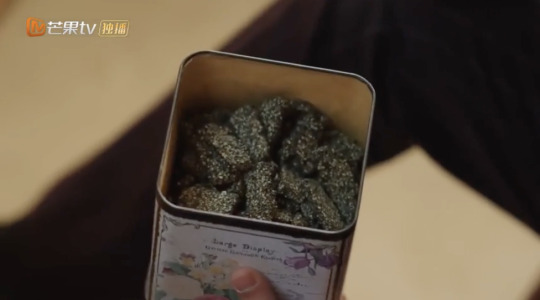
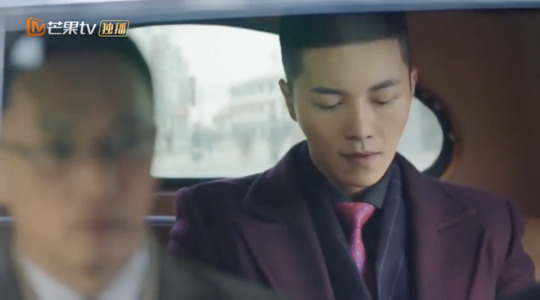
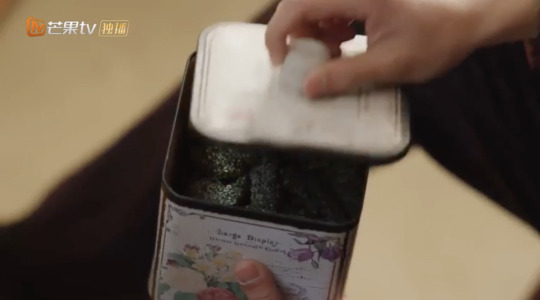
The way he does not trust those sesame cakes...


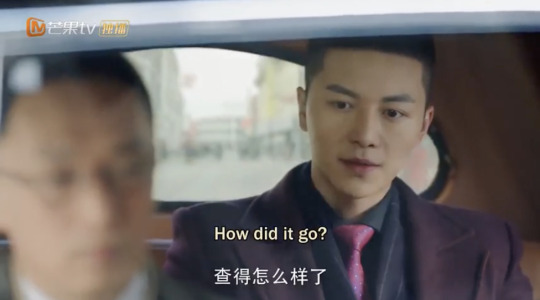
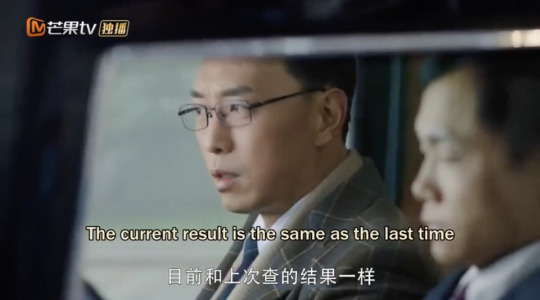


Qiu Ming's like "There's nothing suspicious about the guy but I'll keep verifying for you if it makes you happy"


Oh sure, put someone else's life at risk...
#sass watches cdramas#Killer and Healer#cdramas#Killer and Healer rewatch#zhan junbai#qiu ming#zhan junbai you untrusting motherfucker
4 notes
·
View notes
Text
Fave Five: Queer Taiwanese Fiction
Fave Five: Queer Taiwanese Fiction
Bestiary by K-Ming Chang
Ghost Town by Kevin Chen
Notes of a Crocodile by Qiu Miaojin
The Membranes by Chi Ta-wei
Solo Dance by Kotomi Li

View On WordPress
#Bestiary#Chi Ta-wei#Ghost Town#K-Ming Chang#Kevin Chen#Kotomi Li#Li Kotomi#Notes of a Crocodile#Qiu Miaojin#Solo Dance#Taipei#Taiwan National Day#Taiwanese#The Membranes
27 notes
·
View notes
Text
I love SJ!SQQ :) he's my little meow meow with a waterfall of angst and misunderstanding :/
#original shen qingqiu#shen jiu#my poor little meow meow#idk why but i stay away from shen yuan even if he's the mc of the story#sj!sqq#and i kinda dislike bingge and bingmei#one became a monster worse than his perpetrator and the other is easily manipulated or someone who jumps to conclusions too fast#im sad cuz what if shen jiu had someone by his side for support#yqy never truly supported him after bringing him into the sect tbh#sure sj was horrible for instigating some form of abuse to luo binghe#but like did he even know about ming fan and what he did to luo binghe behind his back#and in the end he was tortured so badly because luo binghe based his facts on rumors spread about sj#also hate qiu what's her name#he never even did anything wrong to women#he was just afraid and scared and alone and angry#like he didn't suffer enough in the qiu family#like he was legit tortured and potentially sa'ed there#luo binghe is an asshole in my eyes
5 notes
·
View notes
Text
Azure mountains by Qiu Ying
Azure mountains by Qiu Ying
Qiu Ying (仇英, ca. 1494-1552) is the most known and the most imitated artist of the Ming era. We remember him for iconic landscapes with azure mountains in the gongbi (工笔) brush technique.
(more…)
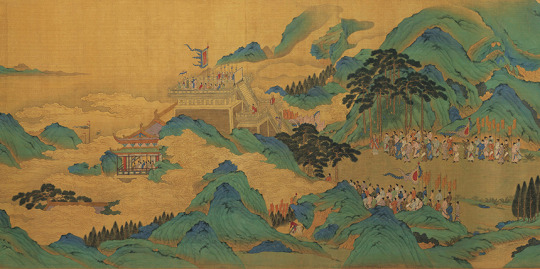
View On WordPress
#ancient China#Asian art#Chinese art#Chinese culture#Chinese painting#Ming dynasty#National Gallery of Canada#National Palace Museum#Qiu Ying#工笔#仇英
29 notes
·
View notes
Photo

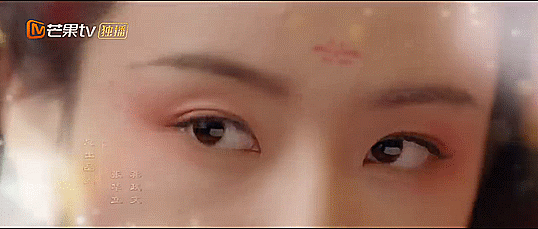
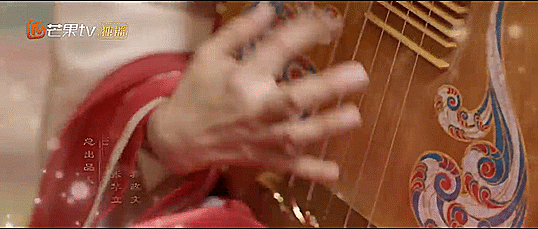
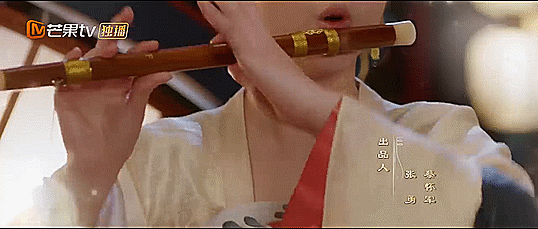

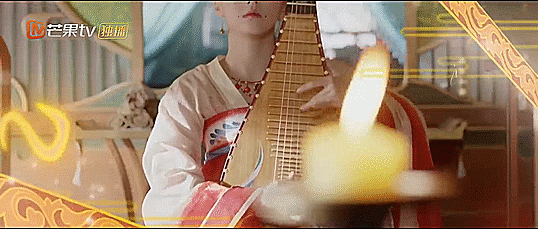
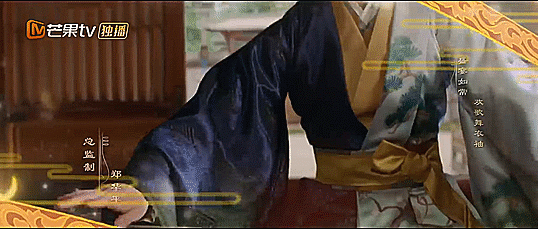
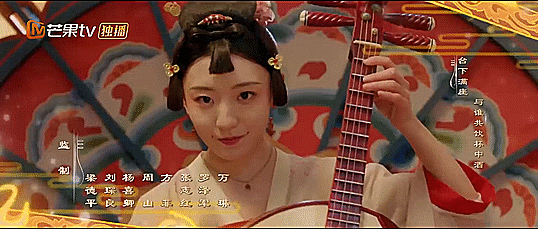
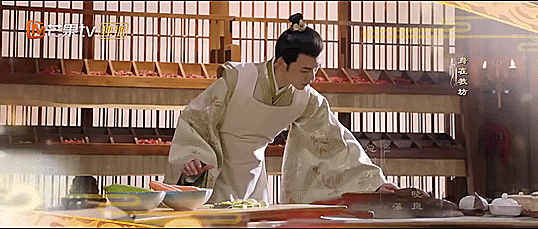

Cdrama: Love Behind the Melody (2022)
Gifs of Intro of cdrama “Love Behind the Melody”
【ENG SUB】 《花朝秋月夜 Love Behind the Melody》 第1集 李飒飒坠楼陆景年英雄救美 【芒果TV青春剧场】
Watch this video on Youtube: https://www.youtube.com/watch?v=5JSLfG0eLTg
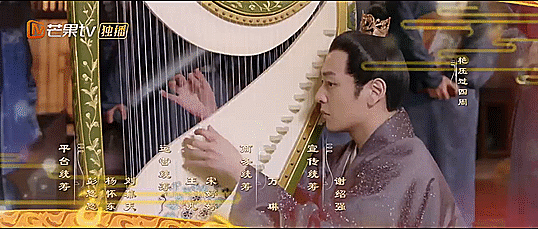
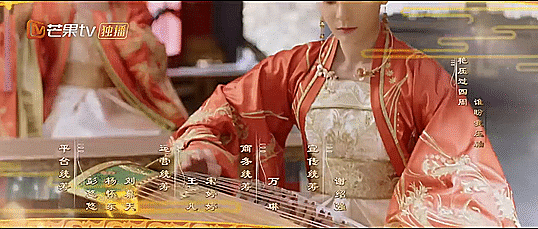
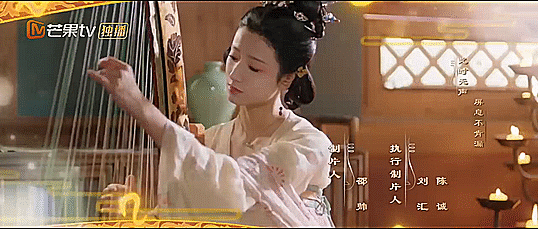

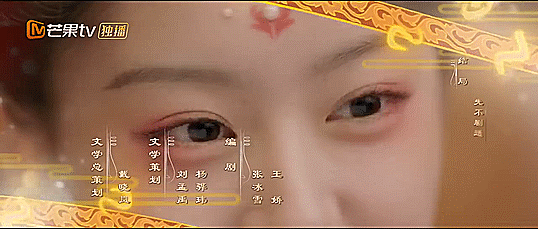
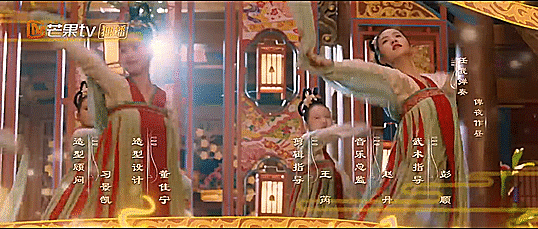


#Love Behind the Melody#花朝秋月夜#Hua Zhao Qiu Yue Ye#Flowers Towards the Night of the Autumn Moon#2022#cdrama#chinese drama#youtube#episode 1#Wu Cheng Xu#Bao Shang En#Pan Yue Tong#Jiang Yi Ming#Zhu Jia Qian#Xiang Hao#Huang Ji#Chen Lu Xi
22 notes
·
View notes
Photo

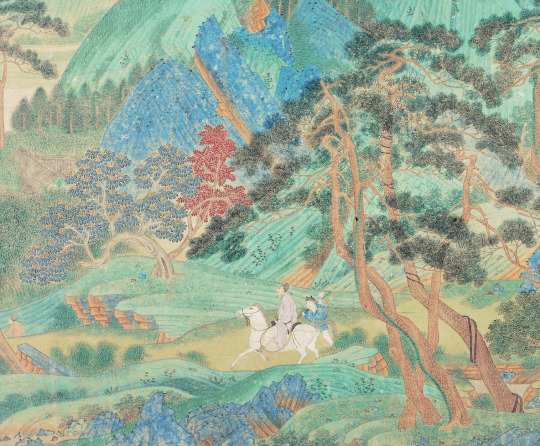


Saying Farewell at Xunyang (detail)
Hand scroll in colour on paper. By Qiu Yin (1494 - 1552)
(source)
#my uploads#image#art#chinese art#medieval art#ming dynasty#painting#i read a book on chinese painting i found and it had a picture from this so i went looking for it and theres a pretty nice scan on wikimedia#so here you all get to enjoy it#qiu yins other works are cool too i like the blue mountains and rocks
7 notes
·
View notes
Text
The Lasting Legacy of Wiseman Confucius | Ancient Origins
The Lasting Legacy of Wiseman Confucius | Ancient Origins
https://www.ancient-origins.net/history-famous-people/lasting-legacy-wiseman-confucius-006759

View On WordPress
#2nd century BC#551 BC#Analects#Ancient China#Chang Hong#China#Chinese#Confucianism#Confucius#Jesuit#Kong Fuzi#Kong Qiu#Kong Zi#Lunyu#Ming Dynasty#Ni#Qin Dynasty#Qin Shi Huang#Qufu#Shandong Province#Shi Class#Spring and Autumn Period#State of Lu#Zhou#Zhou Dynasty
2 notes
·
View notes
Text
there's always less cum/plane than i expect there to be
#pangorambles#cum/plane just seems like an obvious ship to me#and yet#it's like... 1.5% of all works for sv sss on ao3#ming/ling has it slightly worse (rip)#... in terms of total works anyway#probably has it much worse when u factor in all the fics that have them just as a side pairing#on the other hand can u believe mo/shang has more than half as many works as bing/qiu holy shit#it's a good ship i like it but that's wild
1 note
·
View note
Text
I cannot stress enough how viscerally I need a pride and prejudice au of svsss
#Svsss#Listen both sj and sy sqq are so Darcy coded#And idk instead of a harem binghe as lizzie just has many sisters#Hmm this is stretching more but yqy is bingley aka the person whos super friendly and indulgent in sqq#And no one understands why#Is qiu jianluo whickam. Somehow#Sorry this is insane it came to me in a dream#MING FAN IS CAROLINE
1 note
·
View note